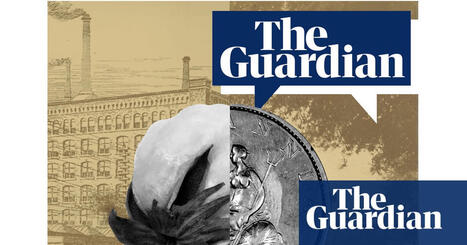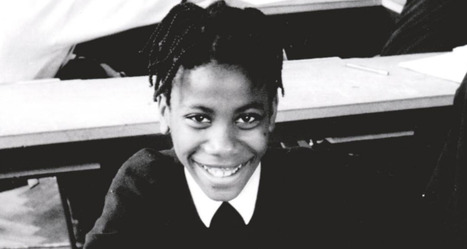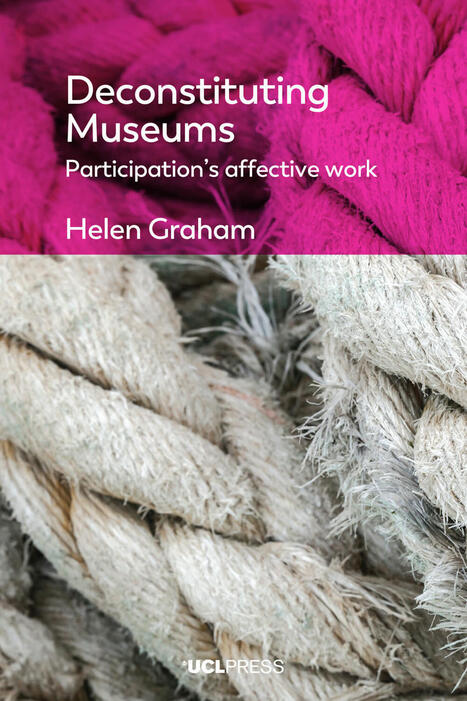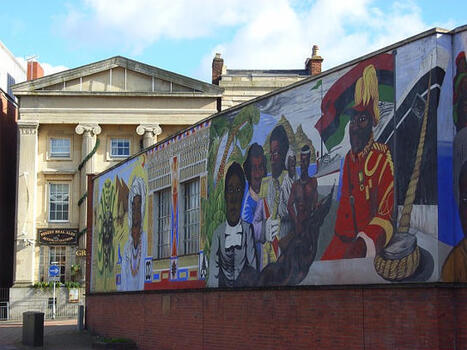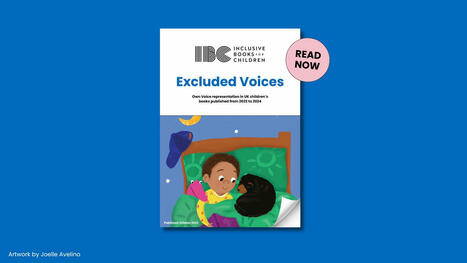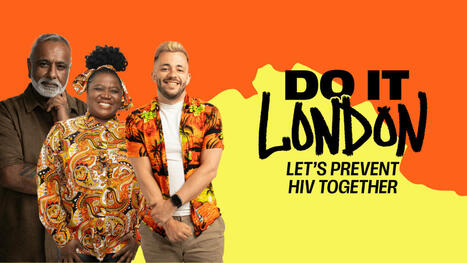 Your new post is loading...
 Your new post is loading...

|
Scooped by
heather dawson
December 10, 2025 4:26 AM
|
Is there a way to bring more diversity to doctoral recruitment? For Richard Freeman and the Bloomsbury Learning Exchange personal connections and support are key

|
Scooped by
heather dawson
November 25, 2025 4:51 AM
|
At the Forum on Internet Freedom in Africa (FIFAfrica) in Windhoek, Namibia that happened on 24-26 September 2025, I had the chance to share my thoughts on some of the central narratives shaping AI governance in Africa. My reflections fundamentally stemmed from conducting tech policy research from an Afro-feminist lens across the African continent for years, which has left me apprehensive about how much AI and other technologies will indeed meet the continent’s needs for an inclusive society, as aided by the dominant policy-making narratives and approaches. In seeking to understand this, I realise that we are far from this realisation at the moment. To fully understand how this policy making is informed in Africa, it is important to acknowledge how narratives are formed. They require discourse around emerging and existing conversations which we use as guides, conscious or unconscious, in sense-making around any topics, events or issues. Narrative entails the underlying stories we use to rationalise what happens, or explain actions taken among other things. I highlighted that over the last few years, the narrative that AI will somehow lead to the continent’s development has gained consensus, and been promoted by actors primarily in the policy-making space. These include governments and regional bodies, multi and bilateral development partners, civil society, grassroots movements as well as the technical landscape which has adopted this language in their functions across Africa. While expressed differently across these actors, this narrative can be summed up as "AI for Development" (AI4D). In brief, this article centrally argues that because Africa’s engagement within the global AI ecosystem has so far been shaped by unequal power relations. This position merits a fundamental rethinking of what AI4D should mean in practice through policy and governance thinking which looks structurally at the continent’s intertwined crises and challenges in relation to AI’s real potential for overcoming them.Continue reading at GenderIT.org.

|
Scooped by
heather dawson
November 18, 2025 3:36 AM
|
Learn how Bradford District Care NHS Foundation Trust used reciprocal mentoring between BME staff and leaders to support career progression.

|
Scooped by
heather dawson
November 12, 2025 5:11 AM
|
Insights from our peer learning event.

|
Scooped by
heather dawson
November 5, 2025 7:00 AM
|
In this bonus episode, the Guardian journalist Chris Osuh explores whether we are living through a pan-African moment 80 years on from Manchester’s groundbreaking 1945 Pan-African Congress

|
Scooped by
heather dawson
November 1, 2025 2:33 PM
|
Europeana exhibition Black lives in Europe a showcase of the achievements of historical and recent black figures in arts, culture and sport. It uses images of photos and prints from Europe’s leading national libraries.

|
Scooped by
heather dawson
October 30, 2025 4:26 AM
|
Black parents in the UK often face unique challenges when navigating the education system, particularly concerning school exclusions.

|
Scooped by
heather dawson
October 8, 2025 8:46 AM
|
Afrobarometer online training video library The ODA tool provides free access to Afrobarometer survey data from 42 nations from 2000 onwards covering topics such as democracy, governance and quality of life. The training suite offers basic guidance to students on manipulating data, creating graphs and understanding statistics.

|
Scooped by
heather dawson
September 25, 2025 3:10 AM
|
School exclusions are a form of structural racism, and indicate deep failings within educational settings.

|
Scooped by
heather dawson
September 17, 2025 10:52 AM
|
Over the past 30 years, museums have turned to participation in the hope that direct involvement of non-museum staff would serve their claims to be accessible, inclusive, representative and diverse. And yet, adding participation to museums has often generated conflict, disappointment and anger. Deconstituting Museums argues that the difficulties produced by adding participatory practice arise […]

|
Scooped by
heather dawson
September 15, 2025 11:30 AM
|
Urban 2063 Urban2063 Africa-led initiative promoting the importance of sustainable urbanisation Find reports discussion and events on sustainable city growth in African cities from African scholars.

|
Scooped by
heather dawson
September 11, 2025 8:58 AM
|

|
Scooped by
heather dawson
September 11, 2025 3:33 AM
|
Reparations are not only necessary, but achievable. When done right, they benefit us all.
|

|
Scooped by
heather dawson
November 28, 2025 7:11 AM
|
Our volunteers have finished cataloguing Colonial Office correspondence from Cameroons and Togoland, explore these records here.

|
Scooped by
heather dawson
November 21, 2025 2:32 PM
|
In this blog post, Gaverne Bennett (PhD student at the University of Leicester) and Jenny Lelkes-Rarugal (BBIH editor) discuss how the Bibliography of British and Irish History (BBIH) can be used to research and teach the histories of race and ethnicity.

|
Scooped by
heather dawson
November 17, 2025 4:11 AM
|
Medicine, Race and Activism Time Line https://bcatimelines.org/medicine-race-activism/
Resource compiled by the Black Cultural Archives which documents the history and contribution of Black medical care workers in the Health system and NHS in 19th/ 20th /21st centuries . It includes some biographies as well as photographs and details of their oral history and other archive resources. Also covered are examples of events relating to racial discrimination in medicine and healthcare in the UK

|
Scooped by
heather dawson
November 12, 2025 5:09 AM
|
Tabetha Darmon reflects on her NHS career over three decades: navigating challenges, speaking up and rising to a Chief Nursing Officer role.

|
Scooped by
heather dawson
November 5, 2025 6:58 AM
|
Fitzwilliam Museum has uncovered student’s work from 1977 that revealed Cambridgeshire location of child’s burial place

|
Scooped by
heather dawson
October 31, 2025 5:32 AM
|
This report (written by The Caribbean & African Health Network secretariat to the APPG on Black Health) finds that Black women in the UK who experience symptoms caused by fibroids are facing delays, poor care and dismissal by healthcare professionals. The report lays the groundwork for continued action, policy development and further research.

|
Scooped by
heather dawson
October 9, 2025 7:23 AM
|
Is UK publishing diverse? Read the Excluded Voices report, our latest research into the number of Own Voice authors and illustrators creating children’s books.

|
Scooped by
heather dawson
October 8, 2025 8:45 AM
|
A gallery of themed photos for Black history month taken form Europe’s major museums . It celebrates The everyday lives of people from the African diaspora captured by photographers Normski, Dennis Morris, James Barnor, Al Vandenberg, Armet Francis and John Heywood.

|
Scooped by
heather dawson
September 18, 2025 3:06 AM
|
Sutton Trust’s latest analysis of the educational backgrounds of those in influential roles across the country – this makes it “one of the professions with the lowest private school attendance” in the report. The proportion who attended a state school has increased by 29 percentage points in a decade. The report also looks at what proportion of Britain’s different “elite” professions attended university, and what proportion attended the Russell Group or Oxbridge.

|
Scooped by
heather dawson
September 17, 2025 3:26 AM
|
Latest insights on the most popular undergraduate routes from Southeast Asia to the UK.

|
Scooped by
heather dawson
September 12, 2025 4:15 AM
|
Explore key findings and recommendations to improve HIV prevention for Black African and Caribbean communities in London. Actionable insights and stats.

|
Scooped by
heather dawson
September 11, 2025 7:33 AM
|
Dr Alison Wilde & Dr Rebecca Fish,Northumbria University This report highlights the urgent need for higher education institutions to recognise andaddress the intersecting barriers faced by disabled working-class academics. Byimplementing structural, cultural, and policy reforms, institutions can move towards amore equitable and inclusive academic environment. These changes must be driven notonly by compliance but by a genuine commitment to justice, care, and transformation.Without more inclusion, universities are much poorer, literally and epistemologically,especially in terms of the adverse impacts on the deepening of inequalities, and thequality of research and teaching.
|

 Your new post is loading...
Your new post is loading...
 Your new post is loading...
Your new post is loading...







